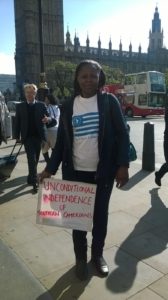“The Penal Code of Oppression”
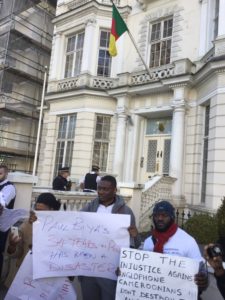
Cameroon, known by many as Africa in miniature, is a product of its colonial masters the English and the French country with a rich ethnic diversity of over 300 different ethnic languages and some of which are spoken and prevalent in other parts of the African continent. With such a diversity with living in close proximity with each other and only been separated by geographical boundaries, Cameroon lives up to its true identity as Africa in miniature. Apart from the myriad tribal languages, English and French remain the two official languages in Cameroon. However, the contemporary challenge, difficulty, problem or in many ways the dilemma we (Cameroonians) face in Cameroon is not as a result of the 300 different tribes living in close proximity but a problem of marginalisation, suppression and oppression of English-speaking Cameroon especially being the minority.
The Cameroon judicial system also varies depending on the area or region where one finds him or herself – if you are in the English part of Cameroon, the Common Law is in practise whilst in French Cameroon, the civil or criminal law – this is a direct effect of both English and French Cameroon previously having two different colonial masters and as a result, these laws have been passed down to the people of Cameroon even after the many years of colonialization.
The Common Law which is practised in English Cameroon is generally uncodified. This means that there is no comprehensive compilation of legal rules and statutes. While Common Law does rely on some inefficient statutes, which are legislative decisions, it is largely dependent on precedence – meaning that the judicial decisions that have already been made in similar cases. These precedents are maintained over time through the records of the courts as well as historically documented case laws known as “yearbooks and reports”. The precedents to be applied in the decision of each new case are determined by the presiding judge. Common law functions as an adversarial system, a contest between two opposing parties before a judge who moderates, with a jury of ordinary people without legal training decides on the facts of the case. The judge then determines the appropriate sentence based on the jury’s verdict.
Civil Law, which is practised in French Cameroon in contrast, is codified. Countries with civil law systems have comprehensive, continuously updated legal codes that specify all matters capable of being brought before a court, the applicable procedure, and the appropriate punishment for each offence. Such codes presents a clear-cut dichotomy between different categories of law: substantive law establishes which acts are subject to criminal or civil prosecution, procedural law establishes how to determine whether a particular action constitutes a criminal act, and penal law establishes the appropriate penalty. In a civil law system, the judge’s role is to establish the facts of the case and to apply the provisions of the applicable code. Though the judge often brings the formal charges, investigates the matter, and decides on the case, he or she works within a framework established by a comprehensive, codified set of laws. The judge’s decision is consequently less crucial in shaping civil law than the decisions of legislators and legal scholars who draft and interpret the codes.
These two legal systems are not mixed in any court sessions and the system of education is set up for English Cameroon to study common law and the French civil law in their various schools of law found in the different parts of Cameroon.
In recent past, we have seen the French domination in English courts by French lawyers who are trained in civil law and have no idea little or no conceptualisation of the common law, sent to work or represent English people in English courts in Cameroon or English people transferred to a French Cameroon and tried for their actions (crime). Although these acts were committed in English Cameroon (i.e. Northwest and Southwest provinces of Cameroon) culprits were tried using civil law in their court proceedings, and on numerous occasions, these have been the case of SCNC activist who have been tried in French courts using civil law while their acts were committed in English Cameroon!
Finally, the penal code enacted on July12, 2016, completely eliminated, erase or better-still wiped out the common law in Cameroon, with section 1-1 stating “All persons shall be subject to criminal law ”, I can begin to describe the frustration of the English Cameroonians or the common law lawyers who have studied all their lives suddenly becoming jobless and having to go back to university to study civil law with a clear and succinct message that Common law has been scrapped out of the English educational system in Cameroon – this is text book definition of marginalisation, oppression, and discrimination.
That was just a section of the so-called Penal code. Other parts include:
Section 102: Hostilities against the Fatherland; any citizen taking part in hostilities against the state is committing treason punishable by death.
Yet hostility means unfriendliness or opposition. Being a member of SCNC will be classified as being hostile against “the fatherland” as they seek to secede from French Cameroon.
Section 111: Secession; whoever undertakes in whatever manner in infringe the territorial integrity shall be punish with imprisonment for life. The SCNC members again will fall prey to this too especially we also know that self-determination is a fundamental right for all.
Other sections include, Section 152: Contempt
Section 153: Contempt of President, Section 158: Collective resistance
Section 231: Unlawful public meetings and processions, the SCNC has been banned and all its meetings have been deemed unlawful, because SCNC is a secessionist activist group and sufficient enough to ban any of such groups from existing.
After several attempts by proponents of the common law to bring the government’s attention to these issues (jobless due to the potential eradication of the common law) to no avail, protagonist of the common law (i.e. lawyers) decided to take to the streets in a peaceful demonstration, that resulted in the government’s response that wasn’t that of dialogue but police harassment and brutality that left many lawyers injured and running for their lives. That notwithstanding, a general strike action was call by the lawyers to force the government to consider the common law of the English Cameroon, that took place on Monday 21 November 2016 and after two days at least 5 civilians were killed by the militia. This has caused not only Common Law lawyers to go on strike, but English speaking Cameroonians worldwide to take to the streets to demonstrate and show their support and solidarity to these lawyers against police brutality vis-à-vis civilians.
http://www.bbc.co.uk/news/world-africa-38078238
In the UK, English Cameroonians demonstrated at the Cameroon High Commissioner at Holland Park in London on the 25 of november 2016 and as usual, instead of a peaceful dialogue, a Cameroonian spy came out of the consulate taking pictures of those demonstrating without their permission: consequentially, all who were there for the demonstration have become potential targets of the Cameroon government but that will not stop us the English speaking Cameroonians! We will die trying to make our voices heard!

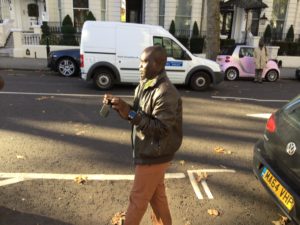
SPY COUGH IN CAMERA GOING INTO THE CAMEROON HIGH BUILDING AFTER TAKING PHOTO OF ACTIVIST DEMONSTRATING AT CAMEROON HIGH COMMISSIONER IN LONDON
The demands of the English Cameroonians is simple: to be able to practice common law in English Cameroon and to have a two state federation as it was in the days of late President Ahmadou Ahidjo. But being an SCNC activist, the independence of English Cameroon is what I demand: for the right of self-determination is a fundamental right and I strongly believe Cameroon is a signatory of the Universal Declaration of Human Rights or maybe I am simply hallucinating! #just saying
Please see below a copy of the Penal Code
http://www.bbc.co.uk/news/world-africa-38078238
http://edition.cnn.com/2016/12/15/world/cameroon-protesters-deaths/
By Pride Mbi Agbor.

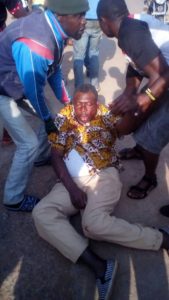 We hail and salute the nationalistic consciousness and patriotism demonstrated by all the people – men, women, youths and students – of British Southern Cameroons in solidarity with the Common Law Lawyers and the ongoing strike declared by the Teachers Trade Unions.
We hail and salute the nationalistic consciousness and patriotism demonstrated by all the people – men, women, youths and students – of British Southern Cameroons in solidarity with the Common Law Lawyers and the ongoing strike declared by the Teachers Trade Unions.





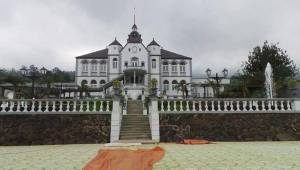 1. The Southern Cameroons has a surface area of 43,000 sq. km and a current population of about 6 million people. It is thus demographically bigger than at least 60 UN and 18 AU Member States, and spatially bigger than at least 30 UN and 12 AU Member States. Located in the ‘armpit’ of Africa, it is sandwiched between Nigeria and Republique du Cameroun like a wedge between West Africa and what in effect is still French Equatorial Africa. It has frontiers to the west and north with Nigeria, to the east with Republique du Cameroun, and to the south with the Equatoria Guinean Island of Bioko. The borders are well attested by international boundary treaties.
1. The Southern Cameroons has a surface area of 43,000 sq. km and a current population of about 6 million people. It is thus demographically bigger than at least 60 UN and 18 AU Member States, and spatially bigger than at least 30 UN and 12 AU Member States. Located in the ‘armpit’ of Africa, it is sandwiched between Nigeria and Republique du Cameroun like a wedge between West Africa and what in effect is still French Equatorial Africa. It has frontiers to the west and north with Nigeria, to the east with Republique du Cameroun, and to the south with the Equatoria Guinean Island of Bioko. The borders are well attested by international boundary treaties.